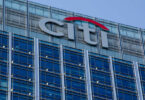Bangladesh’s City Bank recently completed a cross-border Letter of Credit (LC) transaction on Contour’s blockchain network (not to be confused with the Citi bank, which is a member of the Contour network). The trade was financed by the Islamic Development Bank (IsDB) through its trade solutions subsidiary, the International Islamic Trade Finance Corporation (ITFC).
Letters of Credit are an important type of trade finance, traditionally used for large shipments. They tend to be slow and paperwork heavy, something that blockchain aims to ease. For this project, an LC was issued on behalf of Bangladeshi RMG Debonair Group for clothing accessories imported from Hong Kong-based Apparel Link.
A typical cross-border LC issuance takes 24 to 72 hours. The whole process took 38 minutes on Contour’s blockchain which leverages R3’s Corda blockchain technology. Contour previously estimated that digitizing LCs would speed up the process by 90%.
Besides speeding up LC operations, blockchain also reduces forgery and fraud opportunities through increased transparency in data sharing features.
This transaction is the first Sharia-based finance arrangement on Controur’s network, meaning it follows Islamic law protocols.
“As we continue building the world’s trusted network for global trade, we’re keen to ensure this growing eco-system of banks, corporates and technology providers remains inclusive and accessible for all,” stated Countour’s CEO Carl Wegner.
Contour’s consortium, formerly Voltron, was incorporated in the early months of 2020 by seven banks, including Standard Chartered and BNP Paribas. Citi and some other major banks, such as Standard Bank joined soon after. The network aims to promote interoperability and accessibility in the use of blockchain for LC and other document issuances.
Contour went live only three months ago, just eight months after its launch, although it was in development for years before that. Just last month, HSBC went into production on the platform.






